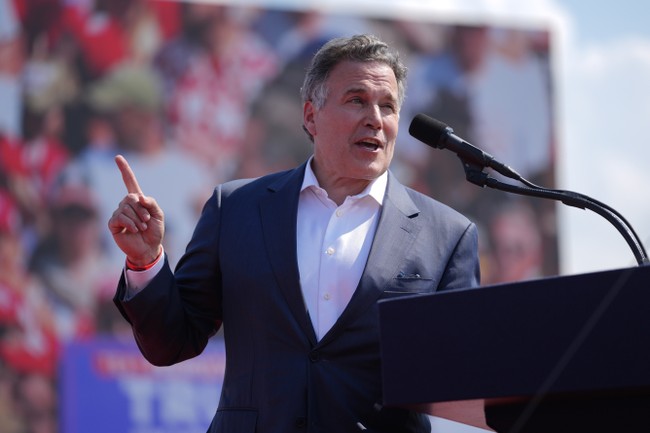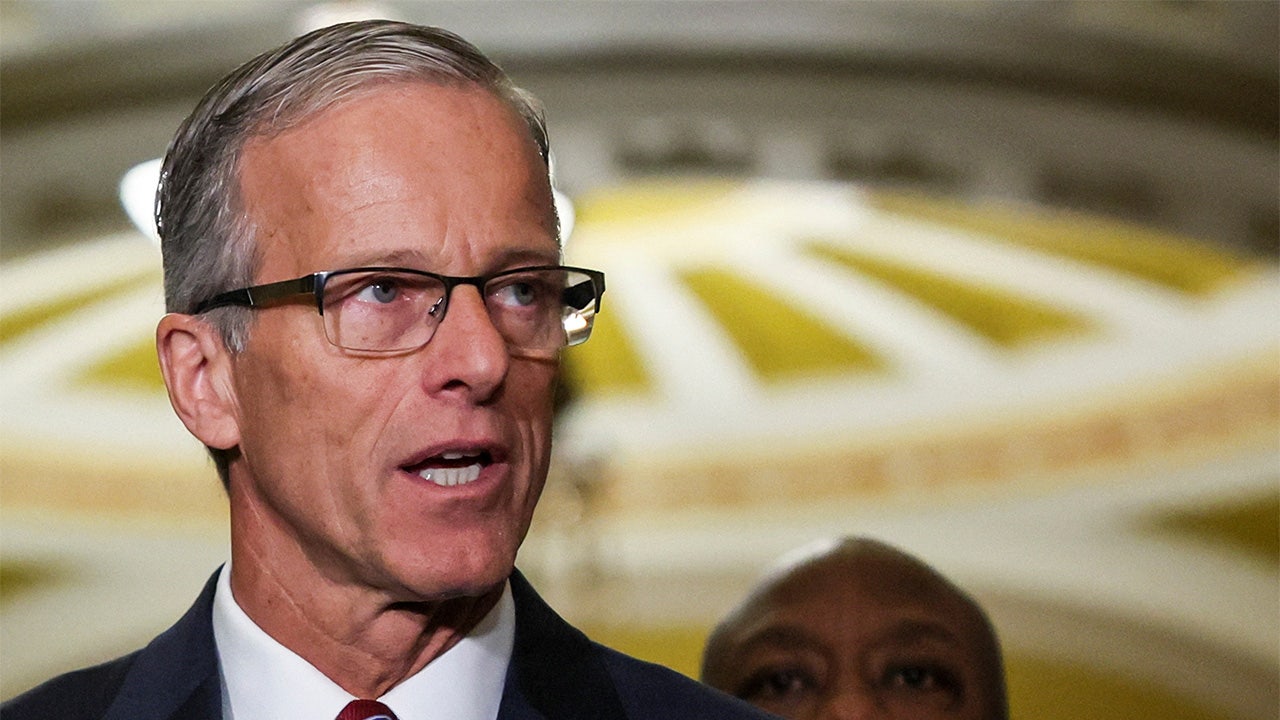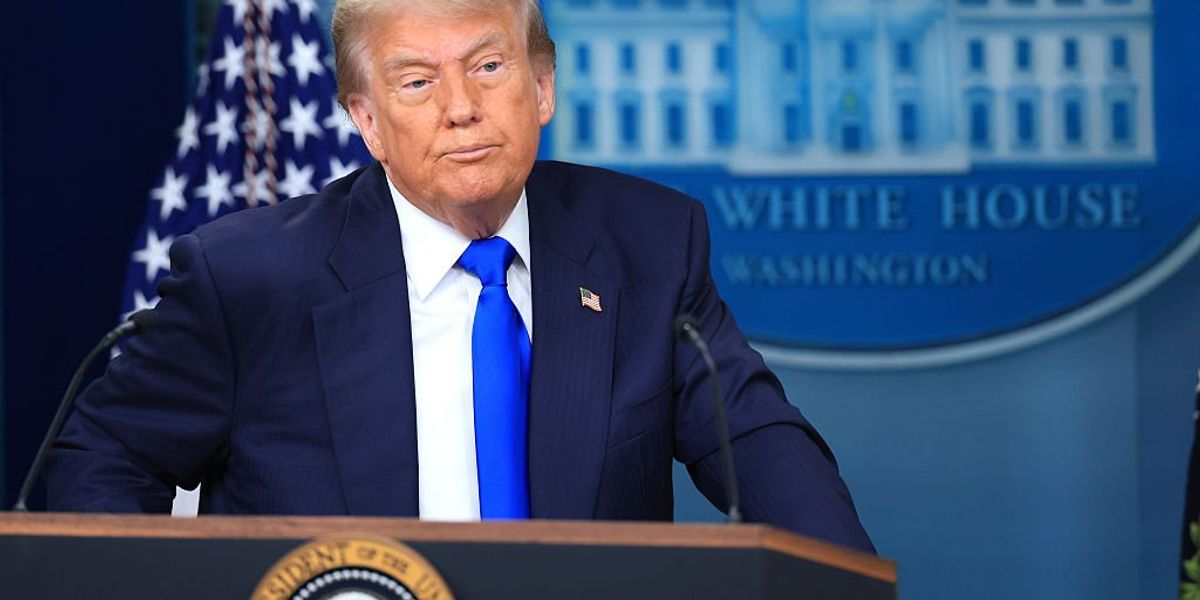In one of its final actions, the Biden-Harris administration’s Consumer Financial Protection Bureau (CFPB) issued a rule in December aimed at curbing overdraft fees, a move critics argue will harm low-income Americans and disrupt financial services.
The rule, finalized just weeks before President-elect Donald Trump takes office, requires banks to cap overdraft fees at $5—far below the current $35 average—or treat overdrafts as a form of credit rather than a penalty.
The CFPB, an agency widely regarded as the brainchild of Democratic Sen. Elizabeth Warren of Massachusetts, claims the rule is intended to increase transparency and protect depositors.
Celebrate Trump’s Historic 2024 Victory with the Exclusive Trump 47th President Collection!
However, critics say it will force banks to tighten restrictions on accounts, limiting access to financial services and driving low-income individuals toward payday lenders, who typically charge far higher interest rates.
E.J. Antoni, a research fellow at the Heritage Foundation, described the rule as “a classic case of government overreach” that ignores the realities of private enterprise. “These new regulations would eliminate certain services and impose stricter rules on bank accounts predominantly held by low-income folks,” Antoni said.
He warned that individuals unable to cover immediate expenses through overdrafts could turn to payday lenders, whose annual interest rates often range from 300% to 500%.
According to the Mayo Employees Federal Credit Union, payday lenders charge significantly higher rates than traditional credit options, such as credit cards (15%-30%) or personal loans.
Data from 2022 shows that 17% of U.S. households with checking accounts reported paying an overdraft fee, with households earning under $30,000 nearly twice as likely to incur such fees compared to those earning $100,000 or more.
The CFPB’s rule has already faced legal opposition.
On December 12, the American Bankers Association (ABA) filed a motion in the Southern District of Mississippi’s Fifth Circuit seeking a preliminary injunction against the rule.
Legal experts argue the rule’s basis—that overdrafts should be classified as loans—is tenuous.
Erik Jaffe, a partner at Schaerr | Jaffe LLP, called the CFPB’s justification “a stretch.”
He explained, “Banks charge customers a fee on overdrafts, which is not interest. Interest must have a time component, but the length of time you take to repay an overdraft fee doesn’t change the amount owed.”
Jaffe also noted inconsistencies in the CFPB’s logic, questioning how the agency could regulate penalties if it claims overdrafts are loans.
The ABA’s legal challenge may gain traction following a June 2024 Supreme Court ruling that limited the scope of Chevron deference, a legal doctrine granting federal agencies leeway in interpreting statutory ambiguities. “This CFPB rule seems to smell a bit like that,” Jaffe said. “The courts will likely conclude it is not the most natural reading.”
Incoming Senate Banking Committee Chairman Tim Scott, R-S.C., criticized the rule, calling it an example of “midnight rulemaking” by the outgoing administration.
“Director [Rohit] Chopra should never have finalized this rule in the first place,” Scott said, adding that he looks forward to working with the next CFPB director to prioritize consumer needs over political agendas.
.@SenatorTimScott‘s statement on the @CFPB‘s final rule capping overdraft fees: pic.twitter.com/cwg3hrLPqk
— U.S. Senate Banking Committee GOP (@BankingGOP) December 12, 2024
House Financial Services Committee Chairman-elect French Hill, R-Ark., echoed Scott’s concerns.
“Capping overdraft services is another form of government price control that hurts consumers who deserve financial protections and greater choice,” Hill said in a December 23 statement.
The CFPB was established in 2010 as part of the Dodd-Frank Act, with Warren playing a key role in its creation.
Former President Barack Obama praised Warren for her work, calling the agency “Elizabeth’s idea” during a 2011 speech.

Peter Earle, a senior economist at the American Institute for Economic Research, criticized the Biden-Harris administration’s approach to regulation.
“Capping overdraft fees by regulatory fiat interrupts the pricing mechanism that reflects the costs and risks of providing overdraft services,” Earle said.
He argued that such measures undermine voluntary commerce and innovation.
As the legal and legislative battles over the CFPB’s rule unfold, the incoming Trump administration is expected to revisit and potentially reverse the policy.
Republican lawmakers and financial institutions argue that the rule’s restrictions will hurt consumers and further limit access to essential financial services.
The opinions expressed by contributors and/or content partners are their own and do not necessarily reflect the views of LifeZette. Contact us for guidelines on submitting your own commentary.
Read the full article here


![Sen Elizabeth Warren’s Brainchild CFPB Overdraft Regulation Could Hurt Low-Income Families [WATCH] Sen Elizabeth Warren’s Brainchild CFPB Overdraft Regulation Could Hurt Low-Income Families [WATCH]](https://www.rvmnews.com/wp-content/uploads/2025/01/2025.01.05-12.26-rvmnews-677a7a730da09.jpg)




![MSNBC Isn’t Taking Trump’s Massive Supreme Court Win Very Well [WATCH] MSNBC Isn’t Taking Trump’s Massive Supreme Court Win Very Well [WATCH]](https://www.lifezette.com/wp-content/uploads/2025/05/2025.05.05-12.11-lifezette-6818ab0f512b6.jpg)




![IDF Takes Out Top Hamas Mastermind Behind October 7 Massacre [WATCH] IDF Takes Out Top Hamas Mastermind Behind October 7 Massacre [WATCH]](https://www.rvmnews.com/wp-content/uploads/2024/11/2024.11.17-02.10-rvmnews-6739f95c00803.jpg)